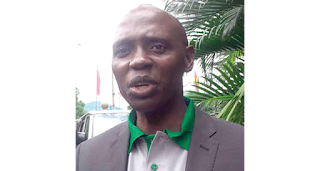Abiodun Adewuya, a Professor of Psychiatrics in
Lagos State University Teaching Hospital (LASUTH) and a Psychiatrist, recently
spoke with CHIOMA UMEHA on issues of mental health in Lagos State. Excerpts:
A medical doctor recently stated that it is not
only the people, who are mentally deranged and roam the streets that are
mentally sick. How do you identify those that have mental issues?
Well, mental health problem are diverse in that
there are some with mild mental health problems, which is called common mental
disorder; there are some moderate ones; there are some severe ones. Yes! The
doctor is very correct. It is only those ones that have severe cases that are
likely to be seen on the streets. But, what we are trying to do is to make sure
that we prevent that from happening. One thing is to treat the people that have
already broken down, that have severe mental illness. But, the best way to
tackle common mental disorder is by treating the mild and moderate mental
disorder. That is why we are training our doctors to be able to recognise mild
and moderate mental disorder in their patients that come for malaria or
tuberculosis or any other thing, even diabetes etc. This is because we discovered
from our studies that between 20 and 40 per cent of patients who attend primary
care centre and general hospitals have a form of common mental disorder or the
other.
So, what we are trying to do is to build the
capacity of our doctors and nurses to recognise these common mental illness and
offer treatment under their supervision in such a way that we are able to
reduce the treatment gap, which is the gap between those who have the problem
and those who are receiving the treatment, because we know that over 80 per
cent of people who have mental health problem in Nigeria or in Lagos do not
receive treatment.
So, how can we make sure that they get treated?
That is by enhancing the capacity of our nurses and doctors to be able to
recognise the common mental disorder in the patients, even when the patients
are not aware of this. They come to hospital and complain that they have
malaria, they have headache, they have this and that, but the problem is that
they mostly depend on their anxiety. So we are trying to train our health
workers, all of them, health workers, Medical Officer of Health (MOHs), nurses,
doctors to recognise this common mental health disorders and then offer
treatment when possible and make a referral to the tertiary hospitals where possible,
that is what we are doing.
Sir, what are the Standard Cooperative Procedures
for professional in psychiatric?
The standard cooperative procedures professional
is that we have to distinguish common mental disorder in patients. We are not
training psychiatrists; we are training the non-specialist health workers, who
are doctors. So what we are trying to do is to set up a kind of procedure for
them, that once somebody is brought to the hospital, who is probably very
angry, very anxious and things like that, these are the steps in which you are
going to take.
What are those common health mental disorders?
The three we are focusing on, which the World
Health Organisation(WHO) said that we should focus on are: depression and
anxiety that is number one; epilepsy which is called (Girior Warapaaradia) and
the big ones we see on the streets, psychosis. These are the three big ones we
feel we should focus on. Right now, in Lagos State we are trying to start by
looking at depression and anxiety because we cannot teach people how to
recognise and treat these three at the same time. So we want to start with
depression and anxiety first, then we can add epilepsy, then we can teach
people how to recognise psychosis. That is our plan.
Concerning care-givers at home what are the things
you see in your relations in your children that make you think they are
mentally ill?
Ok, there are nine symptoms of depression, for
example, it can start from someone feeling low, unhappy, unusual sadness,
crying without being prompted, that is number one. Then, it can actually
progress to other things – if someone has loss of interest in whatever was his
pleasurable activities, like he loves going to church, he likes going to
mosque, playing with his friends and suddenly he is not interested in doing all
that again. And then, of course, it can be someone who has no energy at all to
do anything; he is always lying there watching TV, and there is part of other
things like appetites, he may not be able to eat as he normally eats.
Of course, he can have striking difficulties in
such a way that the fellow would find it difficult to sleep and when he sleeps,
he wakes up in the middle of the night and may not be able to sleep again,
maybe until 5 p.m or around 6 p.m. Even when he wakes up, he feels so
non-refreshed like he still wants to sleep. Then if he is a worker, his work
schedule will go down, he won’t be able to do what he normally does and
everybody would be complaining about him. People around may think that he is
being lazy, no, that person may be depressed.
So, we should look out for all these points very
carefully. If we noticed that in someone we can just ask the person; why don’t
you see them at the nearest primary health care centre? Of course, we have a
list of the health care centres in which their health workers have been trained
to recognise these common health mental disorders.




